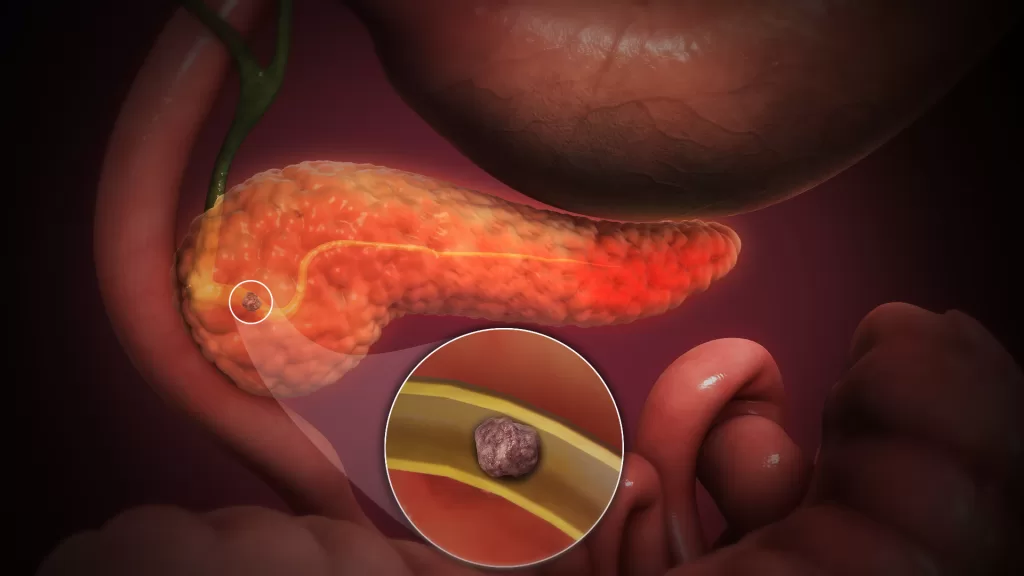Pancreatitis occurs when the digestive enzyme is activated inside the pancreas. Therefore, this causes irritation to the pancreatic cells thus leading to inflammation of the pancreas. The pancreas is a long, flat gland that is next to the stomach on the upper abdomen. It helps in the digestion of food by producing enzymes and hormones such as insulin. However, insulin regulates and controls blood glucose in the body. Conditions that can lead to pancreatitis include:
- Obesity.
- Gallstones.
- Too much use of alcohol.
- Side effects of some medication.
- Injury of the abdomen.
- Surgery of the abdomen.
Types of pancreatitis.
- Acute– with enough rest, hydration, and the use of pain medication it is easy to recover from acute pancreatitis as it takes just a couple of days.
- Chronic – it’s a progressive and long-term condition that never goes away and just keeps getting worse with time.
Symptoms.
Symptoms for acute pancreatitis;
- Fever for some people especially children.
- Abdominal pain that prolongs to the back.
- Vomiting.
- The abdomen feels tender on touching.
Symptoms for chronic pancreatitis.
- The stool may be oily and smelly.
- Upper abdominal pain.
- Uncontrolled loss of weight.
- Abdominal pains that worse after eating.
Risk factors.
- Excessive use of alcohol.
- Diabetes.
- Obesity.
- Family history.
- Use of tobacco products e.g. smoking.
Complications of pancreatitis.
- Kidney failure – thus one becomes dependent on dialysis when kidney failure is persistent and severe.
- Malnutrition – due to diarrhea and weight loss despite one eating healthy.
- Diabetes- as the cells responsible for producing insulin are affected.
- Pancreatic cancer- in cases where there is chronic pancreatitis.
- Infections especially bacterial infection susceptibility increased.
Diagnosis of Pancreatitis

- Blood tests e.g. random blood sugar, kidney function tests, and Liver enzyme.
- Stool test.
- Ultrasound of the abdomen.
- Computerized tomography scan to assess the level of inflammation.
- Magnetic resonance imaging to check for any abnormalities in the pancreas.
Treatment.
- Taking pain medication to relieve the pain.
- Use of intravenous fluids to prevent dehydration.
- Take pancreatic enzyme supplements to help improve digestion.
- Diet change where one is to consume foods that are rich in nutrients but low in fat.
- Surgery to remove gallstones if they are the cause of pancreatitis.
- Also, pancreatic procedures remove any damaged tissues of the pancreas.
- Mount Kenya University history, fees, courses
- List of Best private secondary schools in Nairobi County.
- List of Accredited Private Universities in Kenya
- Kenya Institute of special education, courses.
- Public Universities in Kenya
- The best private primary schools in Nyeri county.
- List of best private primary schools in Kirinyaga County.